The Theophany Blessing of Homes on Epiphany
Today we celebrate the Feast of The Epiphany of Our Lord. The Greek word "epiphany" means manifestation. When pertaining to the life of Our Lord Jesus Christ, it specifically meant the manifestation of His Divinity*. For Traditional Old Roman Catholics and Orthodox Christians ("Revised" Julian Calendar), it especially commemorates The Theophany** (Baptism) of Our Lord (commemorating Christ’s baptism in the River Jordan).
The Feast of the Epiphany was established as a solemn feast in The Church in the middle of the IV century as proclaimed in the ancient Apostolic Constitutions: "Let the Epiphany, in which The Lord manifested to us His Own Divinity, be to you the most honored festival and let it be celebrated on the sixth day of January." (cf. Apostolic Constitutions V, 13)
* "Why do we call this day Epiphany? Because Jesus Christ manifested Himself to all people, not when He was born, but, rather, when He was baptized. Until that time He was unknown to the people, as testified by St. John the Baptist, saying: ‘There stands among you One, Whom you don’t know!’ (John. 1:26.) -- (St. John Chrysostom, 407 A.D., "Homily on the Epiphany")
The Epiphany, one of the most ancient and venerable festivities, originated in Palestine where it was celebrated with a vigil and special services on the spot where, according to Christian tradition, Our Lord was actually Baptized. St. Gregory the Wonderworker of Pontus (d. 270 A.D.) is the first witness to present the Epiphany to us as the "saving proclamation of Christ’s Baptism. (cf. "Homily on Christ’s Baptism")
** The Greek word "Theophany" means the manifestation of the Godhead and clearly reflects the manifestation of the Blessed Trinity at Christ’s Baptism. In his Gospel, St. Mark writes that as Our Lord Jesus Christ was coming out of the River Jordan, the "heavens opened and the Spirit descended upon Him as a dove. And a voice came from heaven, saying: ‘You are my Beloved Son and my favor rests on You!’ (The lighted triple candle, called "Trolca," which is held in front of the celebrant during the Gospel, is a reminder of that mystical manifestation of the Blessed Trinity at the Baptism of Christ.)Adding to our liturgical confusion, the RC New Rite celebrates the Baptism of Christ separately from the Epiphany on the Sunday following, while many Latin "traditionalists" do so a week later on the 13th. And the Julian Old Calandarists (Greek & Russian Orthodox) do so on the 19th. However, for us TORCs, it's today.
Since the solemn blessing of the water takes place on Epiphany, the feast is also known as the Feast of the Blessing of Water. Thus, today the priests bless the living waters. In these petitions we implore God to sanctify these waters by the "descent of the Holy Spirit" in order that they may bring to us the "blessing of the Jordan," defend us against the snares of the devil, heal our spiritual and physical weaknesses, sanctify our homes, and fill us with the graces of the Holy Spirit. It ends with the long prayer of the consecration of the water in praise of the mysteries of the Epiphany and the regeneration of all creation through Jesus Christ. (The Apostolic Constitutions, VIII, 39, attribute the authorship of the first prayer for the blessing of water to St. Matthias the Apostle.)
Afterwards, we sprinkle new Holy Water upon each room of our home and family member. We also share a sip *** to imbibe good health for the New Year and for the "purification of their souls and bodies and cure of their weakness. Therefore, the Solemn Blessing of Water, in commemoration of Christ’s Baptism in the Jordan, is the main feature of the Feast of Epiphany.
*** This custom is very ancient and came to us with the ritual itself. As the first thing taken into the body, holy water (together with a piece of holy bread, if available) may be drunk in the morning. It is drunk at times of temptation and in times of illness, in fits of anger; it may be used to sign the Cross on sores and cuts. Holy water and holy oil are both restorative and protective when they are used with faith and belief in the grace of the Holy Spirit that sanctified them. The reservoir of Holy Water within homes is a fount of continued blessings and protection against all evil. Holy water may be used in cases where a person falls under the power of evil spirits. The individual should be encouraged to drink some of the sanctified water and be sprinkled with it. At times when members of the family feel an especially evil force within the home, the head of the family should sprinkle the inside walls of the family temple with holy water in the same manner as is done by the priest. Other members of the family, bearing candles or icons accompany him during this sprinkling. The evil spirits should be exorcised by this sprinkling of sanctified water; however, if their force persists, the priest should be asked to come and bless the family temple.
Today is also or "Three Kings" a.k.a. to many of us as "Little Christmas" and "The Chalking of the Doors" (see the Blessing Rite ABOVE). The Holy Gospel tells us that the Magi traveled from Persia (modern day Iran) and found Christ, "on entering the house." The door to your home is a holy threshold. We bless those who come and go from it by inscribing above the door in chalk the first two numerals of the year + C + M + B + the last two numbers of the year. (20+C+M+B+05). Tradition tells us that the letters stand for the names of the Three Magi: Caspar, Melchior and Balthasar, (these 9th century names are not found in Scripture). It also means "Christus Mansionem Benedicat" or "May Christ Bless this Dwelling."
Among the various petitions during the blessing of the water is the sanctification of homes. Therein, The Church imposes a clerical duty and obligation upon the priests to bless the homes of the faithful entrusted to their pastoral care at the beginning of the New Year. This invocative blessing rite commonly takes place on "Twelfth-Night" (of Christmas) and is a sacramental of The Church when bestowed by a priest.
Just as our souls do, so also our homes become tainted by the sins of those living in them. Consequently, they lose God’s protective power. That's why they should be reblessed annually, at the Feast of the Epiphany, to secure for them God’s blessings and protection.
Just as the faithful cleanse their soul of sin at least once a year during the Paschal Season, and The Church is blessed with the newly blessed water every year, so should the homes of the faithful be yearly blessed to invoke God’s blessings and protection on it and its inhabitants.
Just as we renew our home insurance annually, so too should we renew our insurance of God’s protection and His blessing which is of more paramount importance and very effective.
The home is the place where people spend a great deal of their time; therefore, the environment of the home is important if we wish to keep in contact with our Faith and eventually attain eternal salvation. For this to happen, the home must be converted from an ordinary home into something more—the family temple. The family temple provides us with an environment in which we can grow and develop into mature Christians. With this in mind, it only makes sense that we would dedicate to God one of our most prized and valuable possession: our homes.
Our domiciles, whether they be houses, apartments, collage dormitories, SRO's, hospital rooms, offices, or even caves in the earth, are an important part of who we are. By inviting the priest into our homes to perform the rite of blessing with holy water, we invite God to transform them into little temples, places where the Lord comes to dwell. This is so appropriate, since traditional Catholicism teaches that the family is a little church, a small Kingdom of God.
It's also for this reason why our covenant community of St. Anthony's Bread Mission Apostolate often meets, prays and worships in domestic home chapels or priestly oratories which we call cenacles****. The very first Christian church was the "Upper Room" (a.k.a. "The Cenacle") which hosted the Last Supper and the arrival of Pentecost.
**** Latin: Dining Room; cenaculum, 2nd fl. Old Roman dining room) In Church terminology, a cenacle is understood to be wherever God's people gather in unity of mind and heart for intercessory prayer. Commonly referred to as "The Upper Room", St. Mark records that Jesus referred to the Cenacle as: "My guest room where I may eat the Passover with My disciples... a room spacious, furnished, and all in order." In the Acts of the Apostles, St. Luke speaks of the "Upper Room" where Jesus' followers were staying, "joined in continuous prayer".
In November, 1994, Pope John Paul II, released his Apostolic letter "On the Coming of the Third Millennium" which outlined The Church's preparation for the Jubilee Holy Year 2000. In it he addressed communities in the Catholic Fraternity with these words: "As Cenacles of prayer, evangelical witness and sensitivity to the Holy Spirit, your communities have a role to play in the renewal of God's people in holiness."
As Mother Teresa of Calcutta once said, “Prayer is the mortar that holds our house together.” America’s greatest architect, Frank Lloyd Wright (1867-1959), explained: "The reality of the house is order. The blessing of the house is community. The glory of the house is hospitality. The crown of the house is Godliness!" ....When the prayer or icon corner is in order, the priest should be called so that the home can be sanctified and dedicated. The icon corner is the center for family prayer. It is before the icons that the Christian family should pray together as one unit. "For where two or three are gathered in My Name, there am I in the midst of them" (Matt. 18:20).


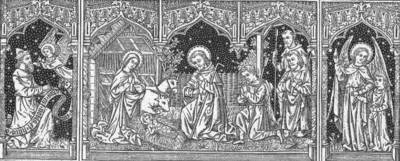






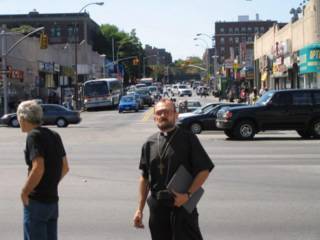












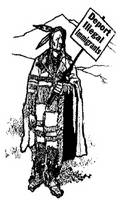
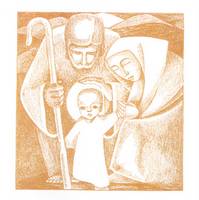


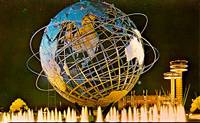
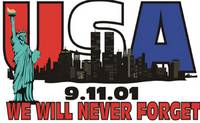



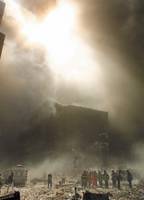



























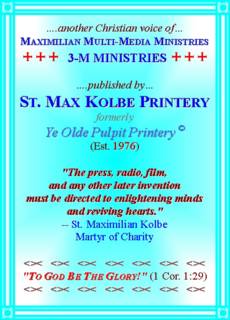




0 Comments:
Post a Comment
<< Home